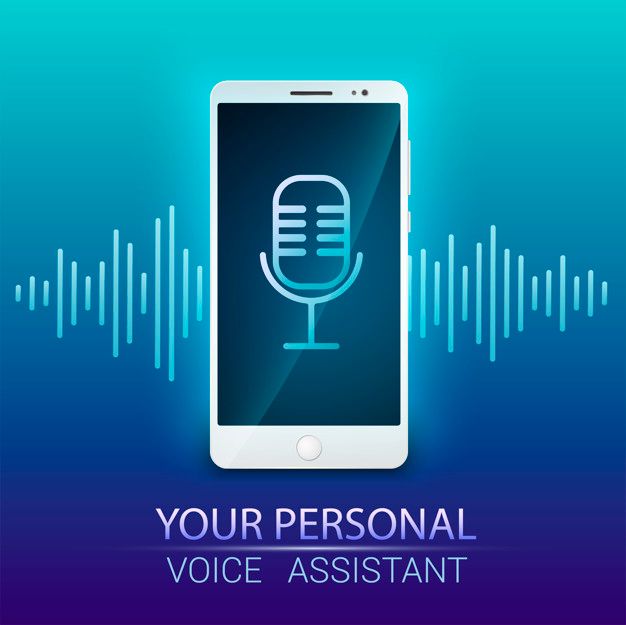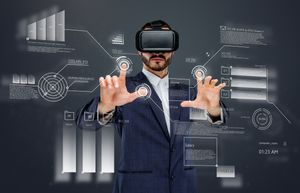With the breakout of technology, online retail businesses have grown in leaps & bounds. The rise in smartphones, social-media channels, and online retail platforms has helped sellers go mobile, build an incredible online presence for their business and leverage growth without sacrificing profits.
However, technology is a double edge sword.
While it has the power to turn your online venture into an overnight success, its over/misuse can leave your business struggling and handicapped.
Online retail business is one such market that has been rightly hit by the technology, and no matter how niche your business is, you cannot ever survive the online selling battles until you incorporate these latest technology trends into your retail business strategies. Here, I have come with the top 4 latest technology trends in retail marketing to give your online business a natural but effective push,
1. Product Videos to Sell Faster
Videos are a great way to introduce a product to your consumers. Video automation software helps you create videos in large numbers. Using the one-click video creation technology, you can even create personalized sales and marketing videos in bulk.
Videos help improve customer loyalty by personalizing every touchpoint in the customer’s journey. Builds Faith; engages consumers in a way that by the time the product video fades out, consumers are smitten by the product, and are willing to make appropriate transactions online. Videos accompanied by quick texts make understanding complicated products with numerous technicalities seem like a walk in the park.
If you still are a little skeptical about using videos in growing your online retail business, here are a few facts to look out for,
a. According to Cisco, global internet traffic from videos will make up 82% of all consumer internet traffic by 2021.
b. In the last two years, Mobile video usage has amplified by nearly 10 million daily viewing minutes.
c. According to CMI, in 2019, 43% of B2C marketers are of the opinion that pre-produced videos make for the most successful marketing content.
f. In a 2018 survey by HubSpot, 54% of consumers wanted to look through video content from a brand or business in order to support them.
As per Forbes, 90% of consumers are of the opinion that videos help them understand a product better and make purchasing easier for them; 64% of people end up buying a product after watching a video about the same. Furthermore, 50% of prospects prefer watching videos than reading about it.
Now that you know how important videos could be in making your online business become a hit among buyers, here is the second important trend to follow.
2. Augmented and Virtual Reality
Online stores are easier to browse through and shop from, and yet, they often fail to provide consumers with the kind of indulging shopping experience that physical stores do, with strategies like immersive store design and projector digital signage. However, lately, with the inclusion of virtual reality in the online retail space, buyers have finally begun to enjoy buying goods/services over the internet.
Virtual reality creates a computer-generated online retail store simulation that allows potential buyers to experience shopping just as they would do in a brick-mortar outlet. According to Forbes, "Virtual reality (VR) immerses users in a fully artificial digital environment while Augmented reality (AR) overlays virtual objects on the real-world environment."
Try before you buy features:
Take Lacoste's virtually try on 3D products for example.

Lacoste's LCST Lacoste AR app lets customers to virtually try on shoes. According to Hubspot, since the release of these 3D products, "over 30,000 users have interacted with the products within the app"
Another smart & growing brand that has beautifully capitalized on the power of augmented reality is Sephora.
Sephora has created a virtual artist app with Modiface to help Sephora app users visualize makeup look on their faces. Accordingly, the users can change or alter the look and decide if or not they liked the product or want to buy it.
3. SaaS Hosting Platform
While different sectors have heartily warmed up to the idea of using SaaS as software (ex: Arcules Video Surveillance as a Service), retail industry has been a little slow at picking and integrating it into their marketing strategies. However, now that the retail owners have fully grasped the importance of SaaS in reducing their workload and managing their inventories, they are quick to take up the trend and fetch its manifold benefits.
Although Shopify and BigCommerce have been acting as full-fledged SaaS eCommerce platforms for long, targeting the mid-enterprise market with their Shopify Plus and BigCommerce Enterprise offerings has been a pretty recent event.
According to Paul Roger, "Shopify Plus has seen significant growth in the last two years, with it now being rumored to represent over 30% of the company’s turnover."

A good video host provides its customers with buffer-free videos equipped with powerful & accurate analytics tools for storing, managing and sharing videos. Empowered with the analytics mechanism, you can easily compare statistics over tables, charts, and graphs, monitoring your company's performance at every important level.
In the retail industry, hosting can be used to grant real-time access to all operational and financial data across businesses. It even helps at making the entire process more effectual, by cutting on the expenses and taking more responsible business decisions for you. Cloud computing creates a solid impact at all the major points in a retail chain, esp. in the areas related to channel operations, merchandising and marketing, supply chain, and sales and support.
How exactly does cloud computing help at improving customer experience with Brands?
With the help of Cloud computing software, retail store owners can keep a track on their customer preferences and can thereon, invent smarter and more effective ways to engage with prospects. Also, retailers can use cloud computing to analyze customer data, making their in-store experience more attractive & fruitful.
4. Answer Engine Optimization
Technology has changed the way people interact with their smartphones. These days consumers spend a good amount of their time placing orders on mobile phones, through voice search. Voice search engines make searching online easier and help customers place orders almost instantly. The voice technology interface has improved a lot over the years and by optimizing voice SEO, retail companies can better their customer experience.

When a voice query is fed to mobiles, the voice assistant tries to understand the context of the spoken content and give users, the most useful responses to the question asked. By optimizing the voice search content for your brand, you can help virtual assistants find your retail business real quickly and reach new potential consumers.
These were a few trends that will help you keep afloat in the retail market for long. To learn about offline retail business read https://storyxpress.co/blog/offline-retail-business-trends/


 Free Screen Recorder for Chrome
Free Screen Recorder for Chrome












